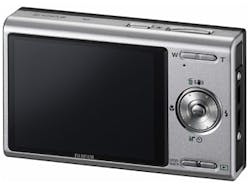Software monitors camera production process
Except for simple pass/fail outgoing quality tests, high-volume camera makers lack any system for in-line, real-time monitoring of production errors that can lower the yield and increase the production costs of manufacturing their cameras.
Consequently, a manufacturing engineer can only monitor the stability of a process through destructive off-line testing -- simple pass/fail image quality testing does not reveal any details of process drift.
Now, through an NSF funded program, engineers at FiveFocal (Boulder, CO, USA) are developing a software toolset that will allow a production engineer to gather real-time process and tolerance information from image-based measurements taken with camera modules undergoing outgoing quality control tests.
Instead of adding additional time-consuming metrology equipment to the assembly line, the software uses image data that is already collected during the quality control evaluation of a typical camera module.
When a camera module is assembled, the module goes through a focusing step which consists of adjusting the distance between the lens and the sensor to find the optimal image quality. During this process, the sensor is actively recording a contrast metric for many focus and field positions, providing a through focus contrast curve that is then used to set the lens at the position that gives the sharpest image.
This through focus contrast data is the input to FiveFocal’s software toolset. In the case of an auto focus module, similar data is taken, but in this case the actuator is used to change the focus position of the lens.
By leveraging data already taken on a production line, FiveFocal’s Real-time Camera Analysis and Process Tracking (ReCAPT) software will be able to be integrated with existing production equipment to identify manufacturing errors and trends before product quality is compromised.
The real time tracking of errors will not only be useful in optimizing yield in production, but also in quickly identifying errors during the product development cycle and in providing the process tolerances that can be used to improve module yield through design for manufacturing methods.
With key commercialization partners, ReCAPT will be tested multiple times in actual production environments and the results reviewed. The results will determine the improvement in production efficiency that is achievable, and quantify ReCAPT’s economic value to manufacturers of digital cameras.
-- by Dave Wilson, Vision Systems Design
